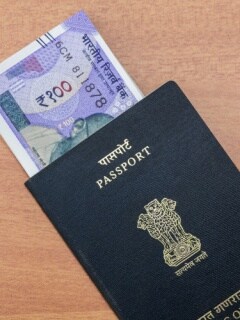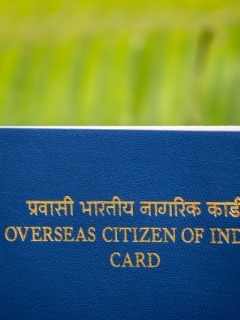CKYC Registry
-
Customer Service Contact us Service request Locate a branch
Find all the help you need
Scan the QR, get our app, and find help on your fingertips

Help CenterSupport topics, Contact us, FAQs and more
-
Login
Are you ready for an upgrade?
Login to the new experience with best features and services
-
Login
Are you ready for an upgrade?
Login to the new experience with best features and services
- Accounts
-
Deposits
IDFC FIRST Bank Deposits
View all Deposits -
Loans
IDFC FIRST Bank Loans
View all Loans - Wealth & Insure
-
Payments
IDFC FIRST Bank Payments
View all Payments -
Cards
IDFC FIRST Bank Cards
View all Cards - Blogs
- Corporate Account
-
Cash Management Services
IDFC FIRST Bank Cash Management Services
View all Cash Management Services - Supply Chain Finance
-
Corporate Lending
IDFC FIRST Bank Lending
View all -
Treasury
IDFC FIRST Bank Treasury
See more details - NBFC Financing
Support topics, Contact us, FAQs and more
- IDFC FIRST Bank Accounts
-
Savings Account
-
Corporate Salary
Account -
Senior Citizens
Savings Account -
First Power
Account -
Current Account
-
NRI Savings
Account -
TASC Institutional
Account -
Savings Account
Interest Calculator
- IDFC FIRST Bank Deposits
-
Fixed Deposit
-
Recurring Deposit
-
NRI Fixed Deposit
-
Safe Deposit Locker
-
FD Calculator
-
RD Calculator
- IDFC FIRST Bank Loans
-
Personal Loan
-
Consumer Durable
Loan -
Home Loan
-
Business Loan
-
Professional Loan
-
Education Loan
-
New Car Loan
-
Pre-owned Car Loan
-
Two Wheeler Loan
-
Pre-owned Two
Wheeler Loan -
Commercial Vehicle
Loan -
Gold Loan
-
Loan Against Property
-
Loan Against Securities
-
Easy Buy EMI card
-
Personal Loan
EMI Calculator -
Education Loan
EMI Calculator -
Home Loan
EMI Calculator -
EMI Calculator
-
Personal Loan Eligibility Calculator
- IDFC FIRST Bank Wealth & Insure
-
FIRST Select
-
FIRST Wealth
-
FIRST Private
-
Mutual Funds
-
Sovereign Gold Bond
-
Demat Account
-
Term Insurance
-
Life Insurance
-
Health Insurance
-
General Insurance
-
Bonds
-
Loan Against
Securities -
Portfolio Management
Service
- IDFC FIRST Bank Payments
-
FASTag
-
Credit Card
Bill Payments -
UPI
-
Funds Transfer
-
Forex Services
-
Pay Loan EMI
- IDFC FIRST Bank Cards
-
Ashva :
Metal Credit Card -
Mayura :
Metal Credit Card -
FIRST Millennia
Credit Card -
FIRST Classic
Credit Card -
FIRST Select
Credit Card -
FIRST Wealth
Credit Card -
FIRST WOW!
Credit Card -
Deals
-
Debit Cards
-
Co-branded Cards
-
Credit Card
EMI Calculator -
FIRST Corporate
Credit Card -
FIRST Purchase
Credit Card -
FIRST Business
Credit Card
- Premium Metal Credit Cards
-
AshvaLifestyle1% Forex₹2,999
-
MayuraLifestyleZero Forex₹5,999
-
FIRST PrivateInvite Only
- Best for travellers
-
MayuraZero ForexMetal₹5,999
-
Ashva1% ForexMetal₹2,999
-
FIRST WOW!Zero ForexTravelLifetime Free
-
FIRST SWYPTravel OffersEMI₹499
-
FIRST Select1.99% ForexLifestyleLifetime Free
-
FIRST Wealth1.5% ForexLifestyleLifetime Free
-
Club VistaraTravelLifestyle₹4,999
-
IndiGo IDFC FIRST Dual Credit CardTravelLifestyle₹4,999
- Max benefits, Free for life
-
FIRST Classic10X RewardsShoppingNever Expiring Rewards
-
FIRST Millennia10X RewardsShoppingNever Expiring Rewards
-
FIRST Select10X RewardsLifestyle1.99% Forex
-
FIRST Wealth10X RewardsLifestyle1.5% Forex
-
FIRST WOW!RewardsTravelZero Forex
-
LIC ClassicRewardsInsuranceShopping
-
LIC SelectRewardsInsuranceShopping
- Reward Multipliers
-
AshvaLifestyleMetal₹2,999
-
MayuraLifestyleZero Forex₹5,999
-
FIRST ClassicNever Expiring RewardsShoppingLifetime Free
-
FIRST MillenniaNever Expiring RewardsShoppingLifetime Free
-
FIRST SelectNever Expiring RewardsLifestyleLifetime Free
-
FIRST WealthNever Expiring RewardsLifestyleLifetime Free
- Rewards & Credit on UPI
-
FIRST Power+FuelUPI₹499
-
FIRST PowerFuelUPI₹199
-
FIRST EA₹NVirtual1% Cashback₹499
-
FIRST DigitalVirtualUPI₹199
-
IndiGo IDFC FIRST Dual Credit CardUPITravelDual cards
- Fuel and Savings
-
FIRST PowerRewardsUPI₹199
-
FIRST Power+RewardsUPI₹499
-
LIC ClassicRewardsInsuranceShopping
-
LIC SelectRewardsInsuranceShopping
- Express and Flaunt
-
AshvaMetal1% Forex₹2,999
-
MayuraMetalZero Forex₹5,999
-
FIRST SWYPEMIOfferMAX₹499
-
FIRST MillenniaRewardsShoppingLifetime Free
- FD Backed rewarding Credit Cards for all
-
FIRST EA₹NVirtualCashback₹499
-
FIRST WOW!Zero ForexTravelLifetime Free
-
CreditPro Balance TransferTransfer & SaveReduce InterestPay Smartly
- IDFC FIRST Bank NRI Forex Solutions
-
Send money to India-Wire transfer
-
Send money to India-Digitally
-
Send money abroad
-
Max Returns FD (INR)
- IDFC FIRST Bank MSME Accounts
-
Platinum Current
Account -
Gold
Current Account -
Silver Plus
Current Account -
Merchant Multiplier
Account -
Agri Multiplier
Account -
TASC Institutional
Account -
Dynamic Current
Account -
World business
Account -
First Startup
Current Account
- IDFC FIRST Bank Business Loans
-
Business Loan
-
Professional Loan
-
Loan Against Property
-
Business Loan for Women
-
Working Capital Loan
-
Construction Equipment Loan
-
Machinery Loan
-
Healthcare Equipment Loan
- IDFC FIRST Bank Business Solutions
-
Payment Solutions
-
Tax Payments
-
Doorstep Banking
-
Point of Sale (POS)
-
Escrow Accounts
-
NACH
-
Payment Gateway
-
UPI
-
Virtual Accounts
-
As per amendment in the Income Tax Rules, PAN or Aadhaar are to be mandatorily quoted for cash deposit or withdrawal aggregating to Rupees twenty lakhs or more in a FY. Please update your PAN or Aadhaar. Kindly reach out to the Bank’s contact center on 1800 10 888 or visit the nearest IDFC FIRST Bank branch for further queries.
-
-
Most Searched
Sorry!
We couldn’t find ‘’ in our website
Here is what you can do :
- Try checking the spelling and search
- Search from below suggestions instead
- Widen your search & try a more generic keyword
Suggested
Get a Credit Card
Enjoy Zero Charges on All Commonly Used Savings Account Services
Open Account Now

FEATURED
New to banking from the USA as an NRI? Here's a quick setup guide
Worried about double taxation or blocked transfers? Learn how to manage NRI banking in the USA—account types, rules, and support from IDFC FIRST Bank.
Team FinFIRST04 Aug 2025 • 3 mins read
-

What is NRI account nomination: 5 Important facts to know
04 Aug 2025 • 3 mins read
-

Confused about NRE and NRO tax rules? Here are all your NRI banking FAQs answered
05 Jul 2025 • 3 mins read
-

-

Moving to India? An NRI’s guide to tax implications
19 Jun 2025 • 3 mins read
More Blogs

Confused about choosing an NRI savings account? Start here
16 Aug 2025 • 3 mins read

New to banking from the USA as an NRI? Here's a quick setup guide
07 Aug 2025 • 3 mins read

5 reasons to open an NRI account while working overseas
07 Aug 2025 • 3 mins read

How to activate your dormant NRI account: A step-by-step guide
07 Aug 2025 • 3 mins read

What is NRI account nomination: 5 Important facts to know
04 Aug 2025 • 3 mins read

New to banking from the USA as an NRI? Here's a quick setup guide
04 Aug 2025 • 3 mins read

Confused about NRE and NRO tax rules? Here are all your NRI banking FAQs answered
05 Jul 2025 • 3 mins read

Moving to India? An NRI’s guide to tax implications
19 Jun 2025 • 3 mins read

Is your NRI account safe? Here's how to improve your cyber safety
19 Jun 2025 • 3 mins read

Open an NRI account
19 Jun 2025 • 3 mins read

NRI tax mistakes you might be making—and how to fix them
19 Jun 2025 • 3 mins read

8 Signs you've finally found the best bank for your NRI account
19 Jun 2025 • 3 mins read

How to invest in IPOs - A complete guide for NRI investors
17 Jun 2025 • 3 mins read

A step-by-step guide to opening an NRI account from abroad
17 Jun 2025 • 3 mins read

A step-by-step guide to opening an NRI account from abroad
04 Jun 2025 • 3 mins read

Income Tax in India for NRIs vs abroad: What you must know
03 Jun 2025 • 3 mins read

PAN card for NRIs - Does it need an updated residential status?
03 Jun 2025 • 3 mins read

Step-by-step guide to opening an NRE Savings Account in India
30 May 2025 • 3 mins read

Gift Deed vs. Will: How NRIs Can Claim Gift Tax Exemptions When Transferring Assets
19 May 2025 • 3 mins read

Sending a Cash Gift to India? Understand the Tax Rules for NRIs
17 May 2025 • 3 mins read

How to turn your NRI accounts into a financial partner
07 May 2025 • 3 mins read

How to maximise money-saving potential with NRI banking products
07 May 2025 • 3 mins read

Top advantages of debit cards that NRIs can enjoy
07 May 2025 • 3 mins read

PIS rules NRIs must know before investing in Indian stocks
07 May 2025 • 3 mins read

Sale of Property by NRI: Tax Implications, Repatriation Rules & Legal Guidelines
05 May 2025 • 3 mins read

How to convert your Savings Account to an NRI Account
03 May 2025 • 3 mins read

How NRI FD accounts work and how they can build your wealth
25 Sep 2025 • 3 mins read

Who can open an NRI bank account with IDFC FIRST Bank?
29 Apr 2025 • 3 mins read

Can an NRI Invest in a PPF?
02 Apr 2025 • 3 mins read

NRI Account benefits that make banking from abroad easy
27 Mar 2025 • 3 mins read

What happens to your demat account after you become an NRI?
27 Mar 2025 • 3 mins read

Guide to UPI for NRI: Setup, eligibility & benefits
27 Mar 2025 • 3 mins read

Overcoming common challenges NRIs face when returning to India
27 Mar 2025 • 3 mins read

An NRI’s guide to investments and portfolio management in India
20 Mar 2025 • 3 mins read

What is the significance of GIFT City for NRIs?
07 Mar 2025 • 3 mins read

What is GIFT City?
07 Mar 2025 • 3 mins read

7 Benefits of an NRE Savings Account by IDFC FIRST Bank
06 Mar 2025 • 3 mins read

Budget 2025 and NRIs: What’s changing and what’s not
06 Mar 2025 • 3 mins read

Aadhaar card for NRI: How NRIs can apply and eligibility criteria
06 Mar 2025 • 3 mins read

Everything you need to know about money transfers to India as an NRI
05 Mar 2025 • 3 mins read

Sending Money to India Made Secure and Simple: A Comprehensive Guide for Hassle-Free Transfers
05 Mar 2025 • 3 mins read

Financial literacy quiz for NRIs managing money in India
28 Feb 2025 • 3 mins read

What is a TRC (Tax Residency Certificate) and why you need it
21 Feb 2025 • 3 mins read

NRI Joint Accounts: A Complete Guide for Non-Resident Indians
21 Feb 2025 • 3 mins read

PAN for NRI: Step-by-Step Guide
07 Feb 2025 • 3 mins read

Financial planning for seafarers: Balancing work and savings
07 Feb 2025 • 3 mins read

7 Factors to finding the perfect NRI banking solution in India
29 Jan 2025 • 3 mins read

Foreign Inward Remittance Certificate (FIRC): Meaning, process, and usage explained
27 Jan 2025 • 3 mins read

8 Common mistakes to avoid when managing your NRE and NRO accounts
24 Jan 2025 • 3 mins read

Homesick & far from home? Stay close to your home with these tips
23 Jan 2025 • 3 mins read

A complete guide to NRE Savings Account
10 Jan 2025 • 3 mins read

A guide to opening an NRI bank account
10 Jan 2025 • 3 mins read

Settle naturally! Ease into working abroad with these 5 tips
09 Jan 2025 • 3 mins read

The NRI’s guide to understanding NRE, NRO, and PIS accounts
25 Sep 2025 • 3 mins read

3 Lifestyle facts of Indian expats you probably didn't know
09 Jan 2025 • 3 mins read

NRI: Meaning and types of NRI accounts
17 Dec 2024 • 3 mins read

4 Benefits of NRI Account
17 Dec 2024 • 3 mins read

Educational Remittances made easy with IDFC FIRST Bank’s Pay Abroad Service
07 Dec 2024 • 3 mins read

Key Financial Steps to Take Before Moving Abroad
05 Nov 2024 • 3 mins read

The future of NRI Banking
05 Nov 2024 • 3 mins read

Gift City tax benefits for NRI
05 Nov 2024 • 3 mins read

Understanding Financial Planning for NRIs
29 Oct 2024 • 3 mins read

Estate Planning for NRIs: Everything You Need to Know
29 Oct 2024 • 3 mins read

Your insider guide to buying property in India as an Indian-origin investor
25 Sep 2025 • 3 mins read

Why UAE NRIs don’t pay capital gains tax on Mutual Funds (MFs) in India
09 Aug 2024 • 3 mins read

NRI banking and regulations: Does your bank cover these important services?
08 Aug 2024 • 3 mins read

NRI account interest rate essentials: Everything you need to know
08 Aug 2024 • 3 mins read

Unlocking financial opportunities : NRI bank account benefits explained
08 Aug 2024 • 3 mins read

Beginner’s guide for the right NRI financial solutions
25 Sep 2025 • 3 mins read

Backpack to the best places in India for NRIs, with these tips
08 Aug 2024 • 3 mins read

Retirement planning for NRIs: Tips for building a secure future
02 Aug 2024 • 3 mins read

NRI banking benefits: Things you need to know
02 Aug 2024 • 3 mins read

Secure transactions, smooth travel: Tips for NRIs travelling to India
02 Aug 2024 • 3 mins read

Understanding Re-KYC: A comprehensive guide for NRI accounts
23 Oct 2025 • 3 mins read

How to understand your NRI bank account statements
29 Jul 2024 • 3 mins read

Can NRIs invest in Mutual Funds? Everything you need to know
26 Jul 2024 • 3 mins read

Learn how to file an ITR as an NRI
25 Sep 2025 • 3 mins read

NRI Cross-Border Banking Regulations
26 Jul 2024 • 3 mins read

Taxes for NRIs in 2025: What you need to know
26 Jul 2024 • 3 mins read

Managing money from far away: UPI for NRI financial needs
15 Jul 2024 • 3 mins read

Who is NRI? Understanding the rules that define NRI status
15 Jul 2024 • 3 mins read

NRI tax decisions: Smart financial tips for homecoming
25 Sep 2025 • 3 mins read

LRS limit 2025: What is the current Liberalised Remittance Scheme cap?
25 Sep 2025 • 3 mins read

NRI taxation in India: Income Tax Rules, Exemptions & Deductions
25 Sep 2025 • 3 mins read

Best places to visit during July-August in India: NRI-friendly adventure hotspots
15 Jul 2024 • 3 mins read

How NRIs can link PAN with Aadhaar: Complete guide
31 May 2024 • 3 mins read

What is DTAA? A complete guide to Double Taxation Avoidance Agreement
31 May 2024 • 3 mins read

The Future of Real Estate Investment for NRIs: Emerging Trends and Opportunities
27 May 2024 • 3 mins read

All You Need to Know about NRI Insurance Plan Options
27 May 2024 • 3 mins read

Exploring the best Indian cities for NRI entrepreneurs to start a business
25 Sep 2025 • 3 mins read

How to renew your OCI Card: Step-by-step guide
27 May 2024 • 3 mins read

What is the Difference Between NRI, OCI & PIO?
25 Sep 2025 • 3 mins read

The growing importance of NRI investments in the Indian economy
27 May 2024 • 3 mins read

Understanding the eligibility criteria for obtaining OCI status
27 May 2024 • 3 mins read

How NRIs can buy property in India: Rules & process
27 May 2024 • 3 mins read

UPI Payments for NRIs with FIRST WOW: Benefits and Features
21 Feb 2024 • 3 mins read

Guide to NRI Accounts in India: Types, Benefits, and How to Open
25 Sep 2025 • 3 mins read

An effective travel guide for NRIs
25 Sep 2025 • 3 mins read

Understanding tax implication on gifts by NRI to Resident Indian
28 Dec 2023 • 3 mins read

Traveling Tips for NRIs to Save Money
25 Sep 2025 • 3 mins read

Difference between NRE and NRO Account you need to know
07 Aug 2024 • 3 mins read

What is an FCNR Account? Features, benefits and eligibility
10 Dec 2023 • 3 mins read

A step-by-step guide on how to open an IDFC FIRST Bank NRI account
23 Oct 2025 • 3 mins read

What is PIS (Portfolio Investment Scheme) for NRIs?
25 Sep 2025 • 3 mins read

Documents required to open an NRI Account in India
10 Dec 2023 • 3 mins read

Discover IDFC FIRST Bank NRI Banking Service under 3 minutes!
21 Aug 2023 • 3 mins read

NRI outward remittance: How to send money home without commissions?
21 Aug 2023 • 3 mins read

NRI outward remittance: How to send money home without commissions?
21 Aug 2023 • 3 mins read

Who can open an NRI bank account with IDFC FIRST Bank?
29 Apr 2025 • 3 mins read

Some unconventional yet popular avenues for NRI investments in India
28 Jun 2023 • 3 mins read

NPS for NRIs: Account opening, eligibility, documents, and more
28 Jun 2023 • 3 mins read

The ultimate guide to NRI Fixed Deposits : Debunking myths and misconceptions
28 Jun 2023 • 3 mins read

Important things to consider before opting for an NRI Home Loan
25 Sep 2025 • 3 mins read

Repatriation meaning for NRIs: What it is and how it works
16 Jun 2023 • 3 mins read

Frequently Asked Questions on NRI Banking
23 Oct 2025 • 3 mins read

Why are NRI Accounts important? Key benefits & features
01 Jun 2023 • 3 mins read

5 tips to make the most of your NRI bank account
05 Apr 2023 • 3 mins read

All you need to know about NRI Investments in India in 2023
25 Sep 2025 • 3 mins read

4 best countries for a blissful retired life
31 Jan 2023 • 3 mins read

Can NRIs Invest in FD in India? Avoid These 5 Mistakes
09 Jan 2023 • 3 mins read

Comprehensive Rules for NRI Investment in India
05 Nov 2022 • 3 mins read

What is an NRE Account? Features & benefits for NRIs
07 Aug 2024 • 3 mins read

NRE vs NRO Account : Difference Between NRE and NRO Account
03 Nov 2022 • 3 mins read

8 NRI Banking Tips - Personal Finance Tips for NRI account
23 Aug 2022 • 3 mins read

6 things NRIs should know before investing in India
23 Aug 2022 • 3 mins read

Why Cross-Border Transactions Require a SWIFT and BIC Code
17 Jun 2022 • 3 mins read

FATCA Explained: What NRIs Need to Know
03 Jun 2022 • 3 mins read

What is LRS (Liberalised Remittance Scheme)? Complete guide
30 Apr 2022 • 3 mins read

Understanding Non-Resident Indian (NRI) in banking
23 Oct 2025 • 3 mins read

Important reasons to open an NRI Savings Account
10 Aug 2021 • 3 mins read

How can NRIs and PIOs invest in mutual funds in India?
18 Sep 2025 • 3 mins read

Moving to India? An NRI’s guide to tax implications
19 Jun 2025 • 3 mins read



























































